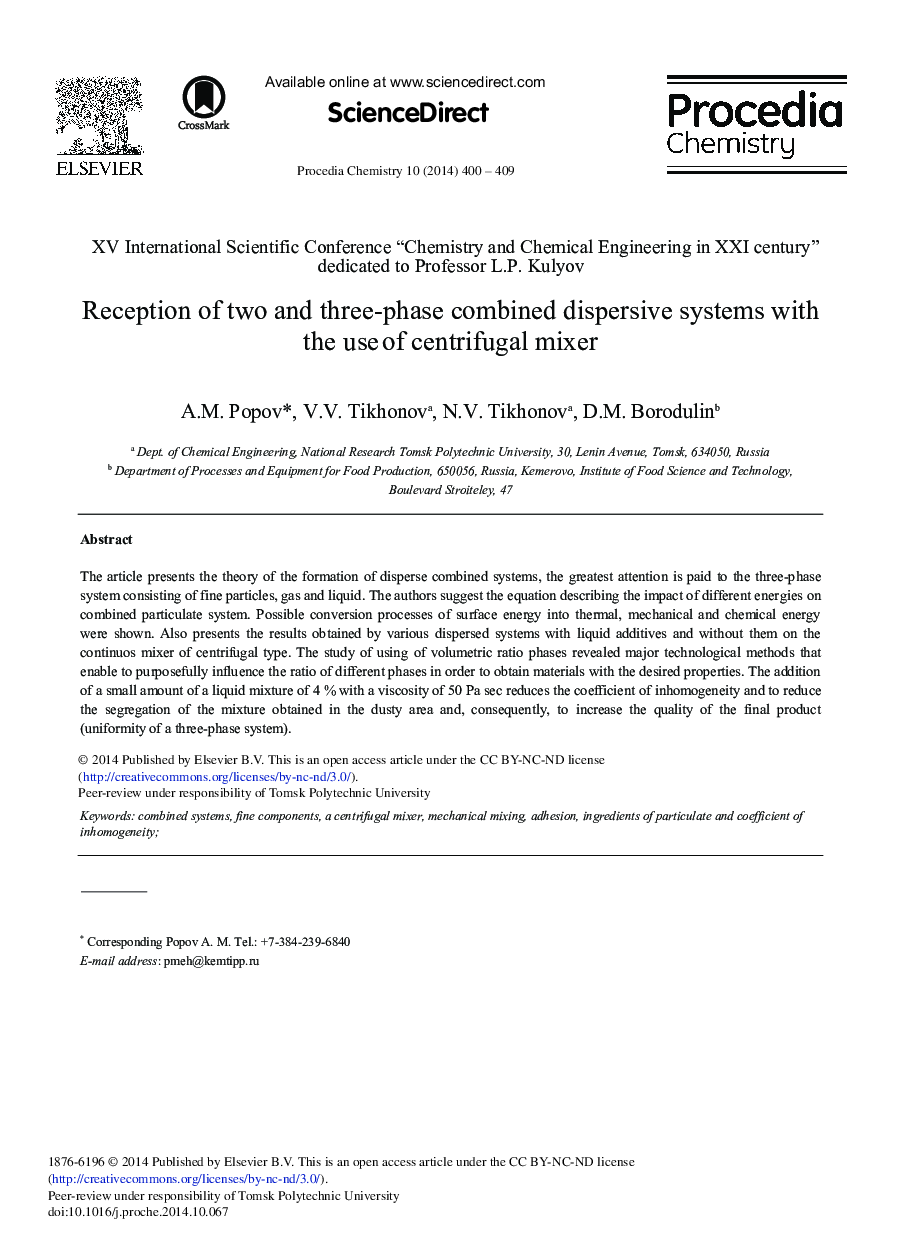| Article ID | Journal | Published Year | Pages | File Type |
|---|---|---|---|---|
| 240511 | Procedia Chemistry | 2014 | 10 Pages |
The article presents the theory of the formation of disperse combined systems, the greatest attention is paid to the three-phase system consisting of fine particles, gas and liquid. The authors suggest the equation describing the impact of different energies on combined particulate system. Possible conversion processes of surface energy into thermal, mechanical and chemical energy were shown. Also presents the results obtained by various dispersed systems with liquid additives and without them on the continuos mixer of centrifugal type. The study of using of volumetric ratio phases revealed major technological methods that enable to purposefully influence the ratio of different phases in order to obtain materials with the desired properties. The addition of a small amount of a liquid mixture of 4% with a viscosity of 50 Pa sec reduces the coefficient of inhomogeneity and to reduce the segregation of the mixture obtained in the dusty area and, consequently, to increase the quality of the final product (uniformity of a three-phase system).
